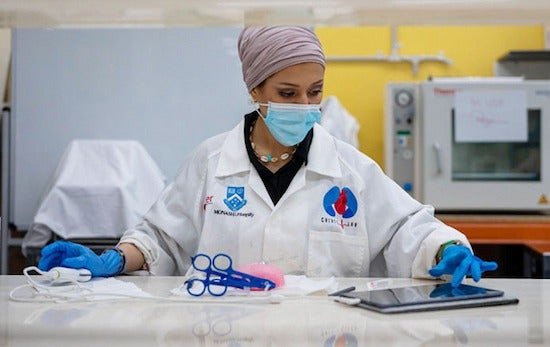
A transdisciplinary consortium led by Monash University has secured an A$50m ($32.7m) grant from the Australian government to advance its artificial heart technology.
The consortium, which is called Artificial Heart Frontiers Program, is based at the Monash Alfred Baker Centre for Cardiovascular Research at the Alfred Hospital in Melbourne.
Its goal is to come up with longer-term solutions for every form of debilitating heart failure.
The Artificial Heart Frontiers Program comprises five universities, three clinical partners and an Australian-grown firm. The intention of the partners is to develop three next-generation implantable cardiac technologies, that are collectively referred as the Total Artificial Heart.
Apart from Monash University, the other universities in the consortium are the University of Sydney, the University of New South Wales, the Griffith University, and the University of Queensland.
Clinical partners include the Alfred Hospital, Baker Heart & Diabetes Institute, and St Vincent’s Health Australia while the industrial partner is medical device company BiVACOR.
The Medical Research Future Fund (MRFF) grant awarded by the Australian government will help develop and commercialise the three key devices for treating the most prevailing types of heart failure.
According to Monash University, the devices include a Mini-Pump which is a wholly new miniature device for patients who have no other options for treating their heart failure symptoms.
The second product is a new type of left ventricle assist device (LVAD) that is implanted right beside a natural heart to help it pump.
The other device in the suite is BiVACOR’s Total Artificial Heart (TAH). It is intended to fully replace a natural heart.
Monash University said that all three devices can respond to the physical needs of the body like a normal heart.
These products are said to offer heart failure patients a first-of-its-kind treatment that encourages physical activity.
Monash University vice-chancellor and president Sharon Pickering said: “The Artificial Heart Frontiers Program underlines Monash’s commitment to purpose-driven research and innovation to deliver tangible and significant outcomes.
“An MRFF grant of this scale recognises the strength of Monash’s world-leading cardiac and engineering research, and our commitment to working with partners in research, industry, government and the community to address global challenges.”
The funding will also support clinical trials to start early within the programme. The Total Artificial Heart device is anticipated to hit the market as early as 2025, with the LVAD and Mini-Pump to follow in 2029 and 2031, respectively.
The advanced artificial heart project by the year 2036 is anticipated to boost local manufacturing and research while creating over 2,000 jobs.
It will also support the Australian healthcare system and grant early access to clinical trials and life-saving technologies for Australians.
Australian Minister for Health and Aged Care Mark Butler said: “As well as the obvious health benefits, this is an incredible story of Australian ingenuity and sovereign manufacturing, with collaboration across universities, clinical hospitals and industry to develop the world’s most advanced artificial heart.”






